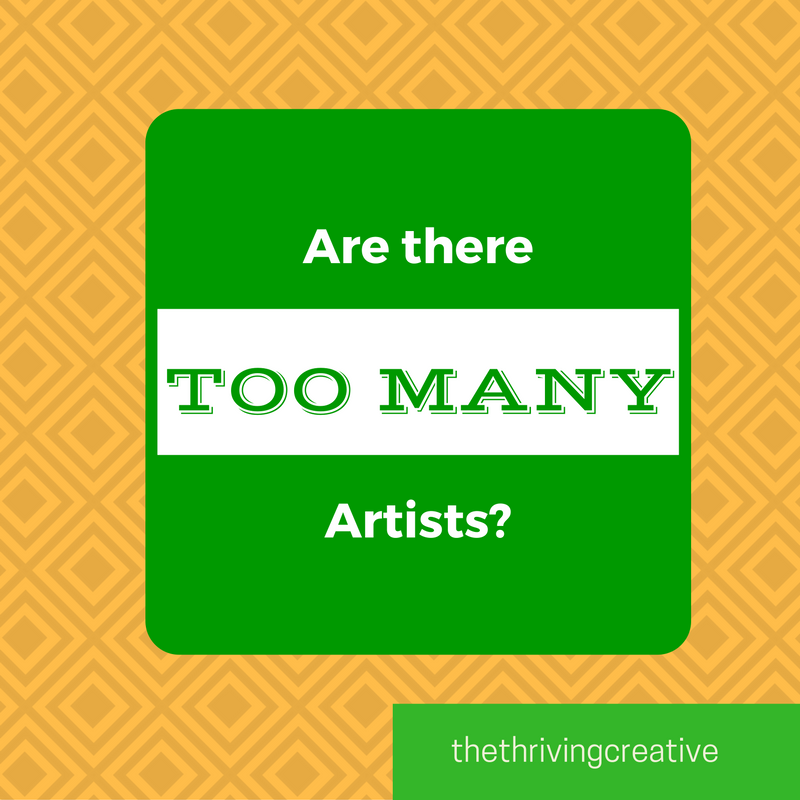As I continue my research into sustainability of creative careers, one thing keeps coming up: the subtle balance between supply and demand and the effect that has on opportunities for artists to be paid for their creative work.
Historically, artists have done very well when Guilds and Unions have been allowed to control the flow of entrants to the profession. However, what has been fascinating in my reading of the literature of cultural economics is learning about times historically when this equilibrium has shifted and the impact this has had.
Here’s a fascinating quote by Robin Lenman, from Painters, Patronage and Art Markets in Germany 1850-1914, in Past and Present, volume 123, quoted in Menger, 2006:
“… the problem of surplus artists was part of a much broader, international cultural phenomenon. Between the 1860s and 1914, for example, steeply rising enrolment in German higher education led to periodic panics about overcrowding and unemployment. In several European countries, literary proletariats were spawned by the mid-century publishing boom. Music and theatre were overflowing with excess labour; in Britain in 1891 there were nearly twice as many musicians as bank clerks, and extreme variations in status and pay. Though the market free-for-all enhanced the importance of dealers, agents, professional organisations and other stabilising elements, it also created a reserve army of starving music-teachers, hack authors and painters forced into all kinds of low-grade and shady occupations.”
Menger, P. M. “Artistic Labor Markets. Contingent Works, Excess Supply and Occupational Risk Management. I: Ginsburgh, VA og CD Throsby.(red.) Handbook of the economics of art and culture.” (2006).
Don’t we hear cries like this today? I know in my sphere there is talk of too many drama schools producing too many actors. Interesting to know that 100 years ago there were similar concerns. One thing is clear, like moths to a flame, people will always be attracted to the arts and while the idea of regulation is tempting, it seldom works. Your only choice is to get smarter about how you work. You could start by digging through the hundreds of blog posts in my archives with tips and suggestions of how to turn your art into a business.

What inspired you to read that book on historic German art?
I’m an art teacher, so I feel guilty for churning out a surplus of artists. I wrote my masters thesis on the “Too Many Artists” dilemma, and now I’m writing a book on the subject. I want to forecast what will happen to artists in the future, above all else.
If you want a free copy after it’s published, let me know.
I really appreciate you bringing this question into conversation – though I don’t necessarily agree with your conclusion that regulation ‘seldom works’. It depends whom you mean it works for. There is a fascinating article on regulated theatre in East Germany, just prior to reunification. Irrespective of one’s political preferences, what was significant was that every person who trained as a professional actor was guaranteed a career – you knew that it was worth putting in the effort and making sacrifices of time and money because when you graduated you knew there were many local, regional or State companies that you could work for and practice your profession. Of course, if you wanted to create risky, politically provocative theatre, this would have been difficult – but no more difficult than in certain democratic countries (so I’m not generalising here ) where actors are increasingly expected to resource their own productions, as Government subsidies are reduced. And such actors have no guaranteed work in the interim – which means they aren’t getting income from their craft, and they lose their skills through lack of acting work. So, we don’t need to go ‘backwards’ to a repressive regime. BUT we could be more creative perhaps in the way we regulate the intake of actors into training where they are given false hopes that they WILL have a career as a full-time actor – whatever that means. Although, I also agree with your proposal that actors and other artists need to be far more savvy about designing portfolio careers while any notion of regulation is excluded from discussion.